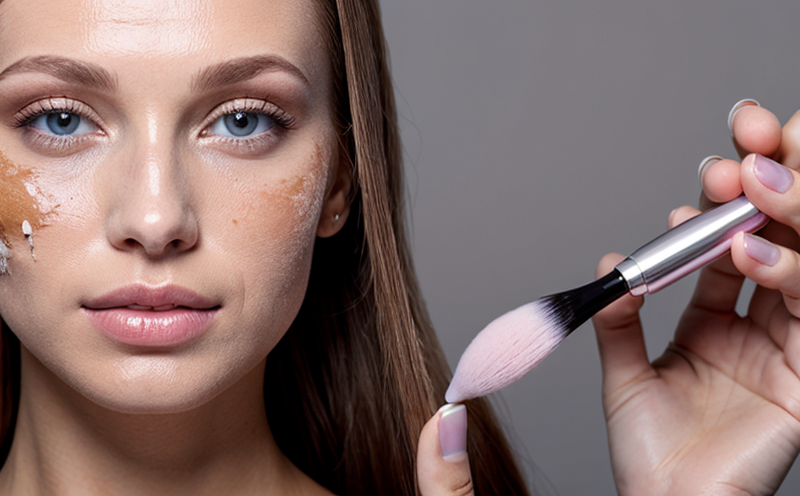Safety Assessment Testing for Cosmetic Products (EU Requirement)
Complying with EU regulations is a critical step in successfully bringing cosmetic products to market. The European Union's Cosmetics Regulation, specifically Article 13, mandates safety assessment testing for all finished cosmetic products before they can be placed on the market.
The primary goal of these tests is to ensure that cosmetics are safe and do not pose risks to human health. This includes assessing potential allergens, irritants, and other harmful substances present in the product formulation. Compliance with EU regulations not only ensures market access but also protects consumers from harmful products, thereby enhancing consumer trust.
The safety assessment testing process typically involves a series of tests conducted on various parts of the final cosmetic product. These include the finished product itself as well as individual ingredients and formulations. The testing must be performed in accordance with European Standard EN 14209:2006, which provides detailed guidelines for such assessments.
For effective safety assessment, samples are prepared according to the specific requirements outlined by regulatory bodies like the European Commission. These include homogenizing the product and preparing aliquots of it for testing. The tests themselves can range from simple visual inspections to more complex analytical procedures aimed at identifying potentially harmful components.
The results of these assessments form the basis upon which manufacturers decide whether a cosmetic product is safe enough to be marketed within the EU. A positive result allows the product to enter the market, while negative findings necessitate reformulation or discontinuation of production until all issues are resolved.
Complying with this requirement involves not only conducting thorough safety assessments but also maintaining detailed records and documentation throughout the process. This ensures that both regulatory authorities and potential customers have confidence in a product's safety. Furthermore, it helps manufacturers adhere to international standards like ISO 21789 which focuses on specific aspects of cosmetic formulation.
In summary, safety assessment testing for cosmetics under EU regulations is essential not only from an ethical standpoint but also commercially. By adhering strictly to these requirements through rigorous testing methods and comprehensive documentation practices, companies can ensure they meet all necessary criteria, thus facilitating smoother entry into the European market while safeguarding public health.
Eurolab Advantages
At Eurolab, we pride ourselves on providing top-tier services that are tailored specifically to meet your needs. Our expertise in regulatory compliance for cosmetics spans across various sectors including personal care products, fragrances, and skincare items.
- We possess extensive knowledge of current EU regulations, ensuring our clients stay ahead of changing laws.
- Our state-of-the-art laboratories equipped with advanced instrumentation allow us to conduct precise safety assessments even on complex formulations.
- A dedicated team of professionals oversees every aspect of the testing process from sample preparation through final documentation.
We understand that time is money, especially in the fast-paced world of cosmetics. That's why our turnaround times are competitive and reliable, allowing clients to receive their results promptly so they can proceed confidently with their next steps.
Our commitment extends beyond just meeting regulatory requirements; we also focus on providing valuable insights that go above and beyond what is mandated by law. This includes offering recommendations for improvement based on test outcomes, helping our customers enhance product safety and quality.
Competitive Advantage and Market Impact
- Achieving compliance early allows businesses to enter the EU market sooner than competitors who are still working towards meeting regulatory requirements.
- Positive test results boost brand reputation, fostering customer confidence and loyalty which can lead to increased sales.
The ability to provide comprehensive safety assessments is a significant advantage in today's competitive industry. It sets Eurolab apart from other service providers by offering more than just compliance; we offer peace of mind knowing that our clients' products meet the highest standards set forth by regulatory bodies.
In addition, being able to demonstrate adherence to EU regulations can open up additional markets outside of Europe as many countries look to align their own standards with those established in Brussels. This global appeal enhances a company's position within international trade networks and fosters stronger relationships with suppliers and distributors worldwide.
Use Cases and Application Examples
| Product Type | Testing Requirement | Results Provided |
|---|---|---|
| Fragrance Oils | Allergen identification, Irritancy evaluation | Presence of allergens, Potential for skin irritation |
| Sunscreen Lotions | UVA/UVB protection factor measurement | SPF rating, PA classification |
| Hair Conditioners | Formulation stability testing | Persistence of active ingredients over time |
- Fragrance oils require detailed allergen identification and irritancy evaluation to ensure they are suitable for all consumers, including those with sensitive skin.
- Sunscreen lotions must have their UVA/UVB protection factors accurately measured to provide effective sun protection levels.
- Hair conditioners need formulation stability testing to maintain the efficacy of active ingredients through extended use.
These examples illustrate how our safety assessment services cater to different types of cosmetic products, ensuring each one meets stringent EU regulations. By doing so, we help protect consumers while supporting our clients' goals for success in the European market and beyond.





